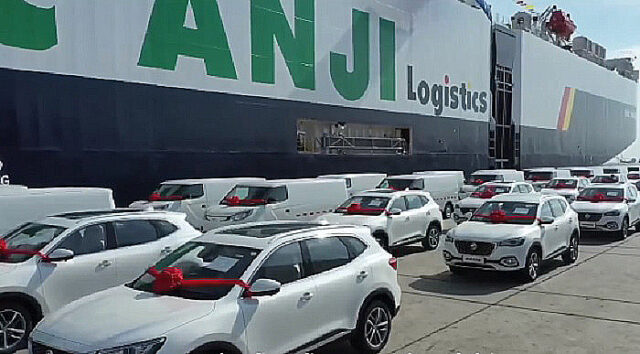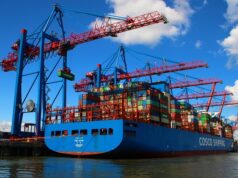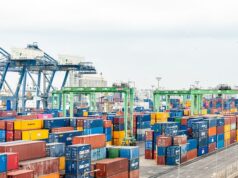- China’s car exports surged 75.7% y-o-y in the first half of 2023, Xinhua reports
- New energy vehicles (NEV) shipped out soared 160% to 534,000 units
- Robust export growth came as China marked the 70th year of its auto industry with FAW Group rolling out its 55.77 millionth vehicle from its factory in Changchun
China’s car exports soared 75.7% year on year in the first half of 2023, sustaining the industry’s robust expansion trend, Xinhua reported on July 16, citing data from the China Association of Automobile Manufacturers (CAAM).
The robust export growth comes as China’s car industry marked its 70-year journey to become a major force in the global auto landscape. Its first carmaker, FAW Group Co Ltd, celebrated the event by rolling out its 55.77 millionth vehicle from the factory’s intelligent assembly line in Changchun, Jilin province.
In H1 2023, the country shipped out 2.14 million cars with new energy vehicle (NEV) exports surging 160% y-o-y to 534,000 units, CAAM said. As China’s H1 car exports soared, NEV production and sales exceeded 3.78 million units and 3.74 million units, up 42.4% and 44.1% y-o-y, respectively.
China’s passenger vehicle exports climbed 88.4% y-o-y to 1.78 million units during the same period, while its exports of commercial vehicles rose 31.9% to 361,000 units, said the association.
In June alone, China exported 382,000 cars, up 53.2% from the same period of 2022. Its vehicle exports exceeded 2 million units in 2021 and topped 3 million units in 2022, CAAM data revealed.
The First Automotive Works, China’s first automotive manufacturing plant and predecessor of FAW Group, was launched in Changchun, Jilin province, on July 15, 1953, marking the beginning of China’s auto industry, Xinhua said.
On July 13, 1956, the first domestic Jiefang truck rolled off the company’s assembly line after three years of preparations and trial production. That event ended China’s reputation as a country that could not produce vehicles, Xinhua said.
From its first car rolling off the production line to being one of the world’s top 500 companies, the FAW Group has become the epitome of China’s auto industry development. After 70 years of relentless efforts, China is moving forward to become a world auto-making powerhouse.
Data show China has been the world’s largest automobile producer and market for 14 consecutive years, and the production and sales of NEVs topped the global market for the eighth year in a row, Xinhua said.
Particularly, vehicle exports grew to 1.07 million units in Q1 2023, General Administration of Customs data show, indicating China has become the world’s largest auto exporter in the period, outpacing Japan.
“We have broken through a number of bottleneck technologies, put in a batch of competitive products, and made solid steps in science and technology self-reliance,” said Qiu Xiandong, general manager of FAW Group, at the event on Saturday, Xinhua said.
Wang Deping, executive vice president of the R&D institute under the FAW Group, said the company has broken through 494 key and core technologies in the past three years.
“Our R&D staff number has grown from 2,360 to more than 4,500, and the development cycle for new cars has been reduced from 48 months to 24 months,” Wang said.
After 70 years of development, Chinese automobiles have also gone global, with local brands such as Hongqi, BYD, and Chery accelerating their overseas layout.
Yang Dayong, chairman of China FAW Group Import and Export Co Ltd, said from the very beginning, Hongqi chose developed regions abroad as its target market and opened up sales channels in 17 countries, including Saudi Arabia and Norway.
RELATED READ: Shanghai carmakers resume output
China’s foreign trade forecast to grow steadily in 2023









